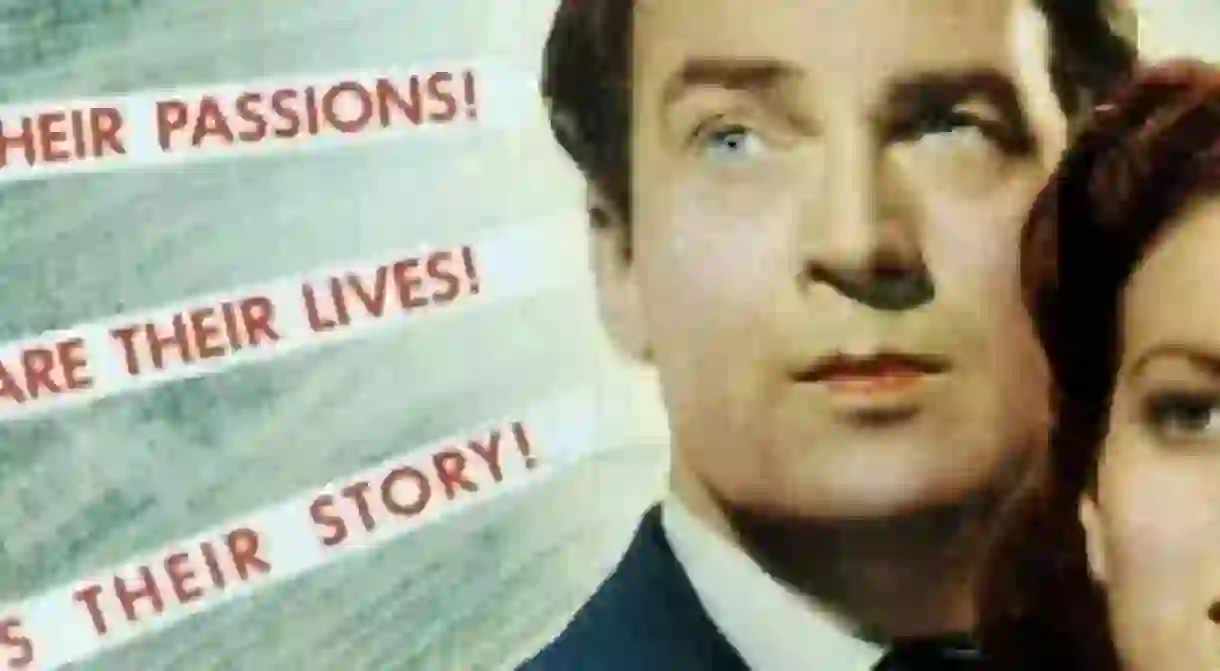Capturing Britain: 10 Films to Represent a Nation

British cinema has a chequered past often overshadowed by the prestige of the country’s theatre. Within the last few decades however, cinema in Britain has come on leaps and bound, offering up some of the most influential films in history. A strong sense of regional heritage is evident in many of these films, from the heart of London to the English countryside. This guide profiles ten films which represent the varied people and places of Britain.
https://www.youtube.com/watch?v=e-kE3CC2uDc
How Green Was My Valley (1941)
Set in a small Welsh mining village at the turn of the century, ‘How Green Was My Valley’ is shot through the perspective of Huw Morgan, the youngest of six, who narrates his family’s struggles in the mining trade. Dissension in the Morgan clan arises when the brothers join the strike in protest of lowered wages and the patriarch Gwilym refuses to participate. The film captures the working-class struggle in the most poignant and quotidian way – through family.
A Canterbury Tale (1944) The Archers Studios
A Canterbury Tale, directed by the well-established cinematic duo Michael Powell and Emeric Pressburger, is loosely based on Chaucer’s Canterbury Tales. The storyline is cleverly re-appropriated to follow an American soldier, a British sergeant and a WLA member, who meet outside Canterbury through a series of strange happenings. The style is a bizarre mixture of realist and expressionistic motifs, offset by the romantic filming locations of Kent and Canterbury. This film is a rare breed in being made during wartime without any explicit propagandist intention.
Blow-Up (1966)
If there was ever a film to embody ‘mod’ London, both culturally and cinematically, it must be Blow-Up. Directed by renowned Italian auteur Michelangelo Antonioni, the film analyses the shallowness of 1960s consumer culture. Thomas (David Hemmings) is a fashion photographer who, lamenting the lack of authenticity in his work, goes to Hyde Park to photograph couple vignettes and inadvertently captures evidence of a murder. Both meditative and tense, the film offers insight into London’s most intriguing era.
Straw Dogs (1971)
Straw Dogs is centred on an American academic, played by Dustin Hoffman, who returns with his wife to her home in small-town Cornwall. When the couple move into their dilapidated house the natives are notably resentful of an outsider in their midst. The film is notorious for the controversial sexual assault of Amy by her ex-boyfriend. Chilling and fraught with violence, the film brings to the fore a meeting of post-Vietnam unrest and English xenophobia.
Chariots of Fire (1981)
Century Fox Chariots of Fire is based on the story of two track athletes in the 1924 Olympic races. Eric Liddell is a devout Scottish Christian who joins the Cambridge track team shortly after Harold Abrahams, an outcast Jew. Despite their rivalry they are both sent to the Games in Paris, which brings them together in the face of much wider competition. So many things about this film are iconic – the uplifting score, the training on the beaches of St. Andrews, and – most importantly – the courage of two young men’s strong, albeit disparate, convictions.
https://www.youtube.com/watch?v=PWle59ZHPIM
Withnail and I (1987)
Withnail and I began with the lowest budget of any on this list and its success as a British cult classic came as a pleasant surprise to those involved in its production – especially the director Bruce Robinson. Withnail and Marwood are bored with their ramshackle flat in Camden and decide to go on holiday in the English countryside, just outside of Penrith, which proves a disaster in more ways than one. The witty dialogue and black humour makes Withnail a quintessential British comedy.
The Remains of the Day (1993)
Productions The Remains of the Day was adapted from by Japanese-English novelist Kazuo Ishiguro. Anthony Hopkins plays a dedicated butler on a family estate in 1950s post-war England, whose loyalties are challenged when the proprietor is denounced as a Nazi sympathiser and his co-worker Miss Kenton (Emma Thompson) makes evident her feelings towards him. On the surface this film appears to be a standard English period piece drama. The plot however, refuses to yield to typical conventions and one-dimensional characters. The setting makes considerable use of real English country estates such as Dyrham Park in South Gloucestershire and Corsham Court in Wiltshire.
Trainspotting (1996)
Considered by many to be the pinnacle Scottish film, Trainspotting, directed by Danny Boyle, follows a set of friends embedded in the Edinburgh drug scene. Ewan McGregor plays Renton who narrates, with pointed flippancy, his addiction to heroin and the foibles of Scottish society. The cinematography is vivid and energetic, engaging with the underbelly of Edinburgh youth culture in a series of over-saturated tableaux.
Billy Elliot (2000)
Film Billy Elliot is in many ways a classic coming-of-age tale: Billy is a coal-miner’s son who dreams of becoming a dancer despite his father’s dismissal of the pursuit as ‘girly’. What sets this film apart is its incorporation of intrinsically Northern, working-class issues and the dissection of various codes of masculinity. Stephen Daldry uses genuine mining villages in Northumberland and Dawdon as the backdrop for a film that sets out to expose rural small-mindedness and oppressive gender binaries.
https://www.youtube.com/watch?v=Nesd7KtZEMk
Bloody Sunday (2002)
A historical drama about the 1972 ‘Bloody Sunday’ shootings in Londonderry, Northern Ireland, the film follows the organiser of a civil rights march, in which 13 civilians were killed. It is shot in a semi-documentary style which in no way distracts from the immediacy of visceral violence that is displayed. Although it is clearly biased towards the Irish protestors, it retains a meticulous objectivity in analysing the effects of the extensive cycle of civil warring between Northern Ireland and England.













